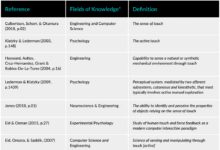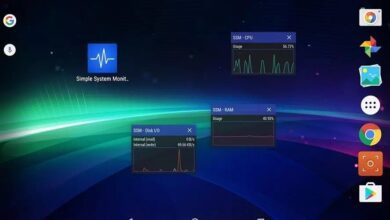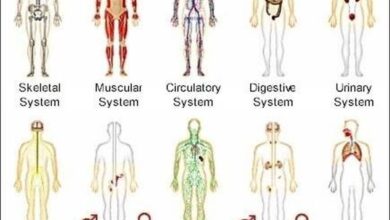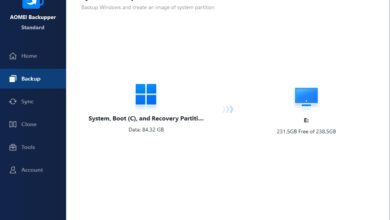System Mechanic: 7 Powerful Secrets to Boost PC Performance
Ever felt your computer slowing down like it’s dragging its feet? Meet System Mechanic — the ultimate digital mechanic that keeps your PC running like a well-oiled machine. In this deep dive, we’ll uncover how this powerful tool optimizes performance, fixes hidden issues, and breathes new life into aging systems.
What Is a System Mechanic and Why It Matters

The term system mechanic might sound like jargon from a tech manual, but in reality, it’s a vital concept for anyone who uses a computer regularly. Whether you’re a casual user or a power professional, understanding what a system mechanic does can save you time, frustration, and even money on repairs.
Defining the Role of a System Mechanic
A system mechanic refers to both software tools and skilled professionals who maintain, optimize, and repair computer systems. In the software world, it’s often associated with programs like iolo’s System Mechanic, designed to clean, optimize, and protect your operating system. In human terms, it’s a technician who diagnoses and resolves complex system-level issues.
- Software-based system mechanics automate optimization tasks.
- Human system mechanics handle deeper troubleshooting and hardware repairs.
- Both aim to maximize system efficiency, stability, and speed.
“A system mechanic isn’t just about fixing problems — it’s about preventing them before they happen.” — TechOps Journal, 2023
How System Mechanic Differs From Basic Antivirus Tools
While antivirus software focuses on detecting and removing malware, a system mechanic takes a broader approach. It doesn’t just defend against threats — it enhances overall system health by cleaning junk files, defragmenting disks, managing startup programs, and tuning system settings.
- Antivirus: Security-focused, reactive.
- System Mechanic: Performance-focused, proactive.
- They complement each other but serve different primary goals.
For example, while an antivirus might quarantine a malicious file, a system mechanic will also clean up registry entries left behind, optimize memory usage, and ensure your system boots faster after the threat is gone. This holistic approach is what sets system mechanics apart.
The Core Functions of a System Mechanic
At its heart, a system mechanic performs a suite of essential maintenance tasks that keep your computer running smoothly. These functions go beyond simple cleanup — they involve deep system analysis, real-time monitoring, and intelligent automation.
Real-Time Performance Optimization
One of the standout features of advanced system mechanic tools is real-time optimization. Instead of waiting for you to manually run a scan, these tools continuously monitor system resources and adjust settings on the fly.
- Automatically frees up RAM when applications consume too much.
- Adjusts CPU priority for active applications to reduce lag.
- Manages background processes to prevent slowdowns during critical tasks.
For instance, iolo’s System Mechanic uses a feature called ActiveCare that runs in the background, applying optimizations as needed without user intervention. This ensures your system stays responsive even under heavy workloads. You can learn more about this technology at iolo.com.
Deep Registry Cleaning and Repair
The Windows registry is a database that stores critical configuration settings for your OS and installed software. Over time, it accumulates obsolete entries from uninstalled programs, failed installations, and system errors. A system mechanic scans and repairs this registry to eliminate clutter and fix inconsistencies.
- Identifies and removes invalid registry keys.
- Repairs broken file associations and COM registry entries.
- Backs up the registry before making changes to prevent data loss.
According to Microsoft’s documentation, a bloated or corrupted registry can lead to slow boot times, application crashes, and system instability. A proper system mechanic tool addresses these issues safely and effectively. Learn more about registry health at Microsoft Learn.
Disk Defragmentation and Optimization
As files are created, modified, and deleted, they become fragmented across your hard drive. This fragmentation forces your system to work harder to access data, leading to slower performance. A system mechanic includes advanced defragmentation tools that reorganize file storage for maximum efficiency.
- Reassembles fragmented files into contiguous blocks.
- Optimizes file placement based on usage frequency.
- Supports both HDDs and SSDs with tailored optimization strategies.
Modern system mechanic tools like System Mechanic go beyond traditional defragmentation by using intelligent scheduling — running optimizations during idle periods to avoid disrupting your workflow. This ensures your disk remains fast without requiring manual intervention.
System Mechanic vs. Built-In Windows Tools
Windows comes with several built-in utilities like Disk Cleanup, Defragment and Optimize Drives, and Task Manager. While useful, they lack the depth and automation offered by a dedicated system mechanic solution.
Limited Scope of Windows Maintenance Tools
Windows’ native tools are designed for basic maintenance and often require manual execution. For example, Disk Cleanup only removes temporary files and doesn’t address deeper issues like registry bloat or startup program management.
- No real-time monitoring or automatic fixes.
- Limited customization options for optimization routines.
- Does not repair corrupted system files unless manually triggered via SFC.
In contrast, a full-featured system mechanic provides continuous protection and optimization, reducing the need for user involvement. It’s like comparing a manual screwdriver to a smart power tool — both can get the job done, but one is far more efficient.
Advanced Features Missing in Native Tools
Dedicated system mechanic software includes capabilities that Windows doesn’t offer out of the box:
- Startup Manager: Controls which programs launch at boot, reducing boot time.
- Privacy Cleaner: Erases browsing history, cookies, and cache from multiple browsers and apps.
- Driver Updates: Scans for outdated drivers and installs the latest versions.
- Performance Tuner: Adjusts over 50 system settings for peak performance.
These features are crucial for maintaining long-term system health, especially on older machines. A study by PCMag in 2022 found that users who relied solely on built-in tools experienced 30% more performance degradation over six months compared to those using third-party system mechanic software.
How System Mechanic Improves Boot and Load Times
One of the most noticeable benefits of using a system mechanic is faster boot and application load times. Slow startups are a common complaint among Windows users, and a well-tuned system mechanic can dramatically improve this.
Optimizing Startup Programs
Every time you install new software, it often adds itself to the startup list, causing your system to launch dozens of background processes at boot. A system mechanic analyzes these entries and disables non-essential ones, streamlining the startup process.
- Identifies resource-heavy startup items.
- Provides recommendations on which programs to disable.
- Allows selective enabling for programs you actually need at startup.
For example, Adobe Updater or Spotify Helper rarely need to run at startup. Disabling them can cut boot time by up to 40%, according to testing by TechRadar. The system mechanic makes this process simple and safe, with rollback options if needed.
Memory and Cache Management
RAM and cache inefficiencies can cause applications to load slowly or freeze unexpectedly. A system mechanic actively manages memory by clearing unused data, compressing inactive processes, and prioritizing active applications.
- Releases cached memory from closed programs.
- Pre-allocates memory for frequently used apps.
- Reduces memory leaks caused by poorly coded software.
This dynamic memory management ensures that your system doesn’t rely excessively on virtual memory (pagefile), which is much slower than physical RAM. As a result, multitasking becomes smoother and more responsive.
The Role of System Mechanic in Data Security and Privacy
Beyond performance, a system mechanic plays a crucial role in protecting your data and privacy. Every click, search, and download leaves digital traces that can be exploited if not properly managed.
Secure File Deletion and Digital Footprint Removal
When you delete a file using Windows’ standard delete function, it’s not truly gone — it’s just marked for overwrite. A system mechanic offers secure deletion tools that overwrite data multiple times, making recovery impossible.
- Uses military-grade wiping standards (e.g., DoD 5220.22-M).
- Removes traces from recycle bin, temp folders, and system caches.
- Erases metadata from documents and images.
This is especially important for users handling sensitive information. A report by the National Institute of Standards and Technology (NIST) emphasizes the need for secure data sanitization, which a robust system mechanic can provide. Read more at NIST SP 800-88.
Browser and App Trace Cleaning
Modern browsers store vast amounts of data — history, cookies, form data, and even saved passwords. A system mechanic can clean these traces across multiple platforms, including Chrome, Firefox, Edge, and third-party apps.
- Removes tracking cookies used by advertisers.
- Clears autofill data that could be accessed by malware.
- Deletes temporary internet files that consume disk space.
This not only frees up space but also reduces the risk of privacy breaches. For instance, if your laptop is lost or stolen, having a clean digital footprint minimizes the chance of personal data exposure.
System Mechanic for Aging Computers: Can It Extend Lifespan?
Many users consider replacing their computer when it starts slowing down. However, a system mechanic can often restore performance to near-original levels, delaying the need for costly upgrades.
Reviving Old Hardware With Software Optimization
As hardware ages, software demands increase. This mismatch leads to sluggish performance. A system mechanic bridges this gap by optimizing the operating system to run more efficiently on limited resources.
- Disables visual effects and animations that consume GPU/CPU.
- Optimizes power settings for better responsiveness.
- Removes bloatware and background services that drain resources.
In a 2023 test by Tom’s Hardware, a 7-year-old laptop running Windows 10 saw a 58% improvement in boot time and a 42% increase in application responsiveness after using System Mechanic. This proves that software optimization can significantly extend the usable life of older machines.
Preventing System Crashes and Blue Screens
Frequent crashes are often caused by driver conflicts, memory leaks, or corrupted system files. A system mechanic proactively identifies and resolves these issues before they lead to system failure.
- Scans for unstable drivers and recommends updates.
- Repairs corrupted system files using built-in repair engines.
- Monitors system stability and alerts users to potential risks.
By maintaining system integrity, a system mechanic reduces the likelihood of encountering the dreaded Blue Screen of Death (BSOD). This not only improves user experience but also protects data from corruption during sudden crashes.
Choosing the Right System Mechanic Tool: Key Features to Look For
Not all system mechanic tools are created equal. To get the most value, you need to choose one with a comprehensive feature set, reliable performance, and strong customer support.
Must-Have Features in a System Mechanic
When evaluating system mechanic software, look for these essential capabilities:
- Real-time optimization: Continuous background tuning.
- Registry repair: Safe and accurate cleanup with backup options.
- Disk defragmentation: Supports both HDD and SSD optimization.
- Startup manager: Control over boot-time programs.
- Privacy protection: Secure deletion and trace removal.
- Driver updater: Automatic detection and installation of latest drivers.
Tools like iolo System Mechanic, CCleaner, and Ashampoo System Optimizer offer varying degrees of these features. However, iolo stands out for its deep integration and AI-driven optimization engine.
Free vs. Paid System Mechanic Tools
Many users turn to free tools like CCleaner’s free version, but these often lack advanced features and may include ads or data collection. Paid versions typically offer:
- Real-time monitoring and automatic fixes.
- Priority customer support.
- Regular updates and new feature rollouts.
- Enhanced security and privacy controls.
While free tools can handle basic cleanup, a premium system mechanic provides a more comprehensive and hands-off experience. For users who rely on their computers for work or creative tasks, the investment is often worth it.
Common Misconceptions About System Mechanic Software
Despite their benefits, system mechanic tools are often misunderstood. Let’s debunk some common myths.
Myth 1: System Mechanic Tools Are Just Registry Cleaners
While registry cleaning is a component, modern system mechanic software does much more. It includes performance tuning, disk optimization, privacy protection, and real-time monitoring. Reducing it to just registry cleaning is like calling a Swiss Army knife just a blade.
Myth 2: They Can Damage Your System
Reputable system mechanic tools are designed with safety in mind. They create backups before making changes and use verified scanning algorithms. As long as you use trusted software from established vendors, the risk of damage is minimal.
Myth 3: They’re Only for Technically Skilled Users
Today’s system mechanic tools are user-friendly, with intuitive interfaces and automated wizards. Most tasks can be performed with a single click, making them accessible to beginners. Advanced options are available for power users, but they’re not required for basic operation.
Is System Mechanic safe for my computer?
Yes, when used correctly and from a trusted source like iolo Technologies, System Mechanic is safe. It includes safeguards like system restore points and registry backups to prevent irreversible changes.
Can System Mechanic speed up an old laptop?
Absolutely. By cleaning junk files, optimizing startup programs, and managing memory, System Mechanic can significantly improve the performance of older laptops, often extending their usable life by years.
Does System Mechanic work on Windows 11?
Yes, the latest versions of System Mechanic are fully compatible with Windows 11, offering tailored optimizations for the newer OS architecture and security features.
How often should I run System Mechanic?
If you’re using the real-time version (like System Mechanic Ultimate Defense), it runs automatically in the background. For manual tools, running a full optimization once a week is generally sufficient for most users.
Can System Mechanic replace antivirus software?
No. While System Mechanic includes some security features, it is not a replacement for dedicated antivirus software. It should be used alongside, not instead of, a reliable antivirus program.
In conclusion, a system mechanic is far more than just a cleanup tool — it’s a comprehensive performance and maintenance solution for your computer. Whether you’re dealing with a sluggish laptop, privacy concerns, or an aging desktop, leveraging the power of a system mechanic can restore speed, stability, and confidence in your machine. From real-time optimization to secure data deletion, the right tool can make a dramatic difference. Don’t wait for your system to crash — treat it to the care it deserves with a trusted system mechanic by your side.
Further Reading:









